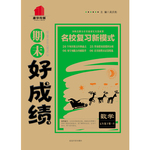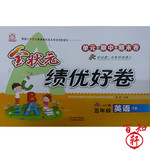题目内容
The telephone rang in the police station at Richmond, California , USA.
“Police station? A train for Santa Fe hit a truck at the McDonald Street Crossing. Please ____21____ there at once. With an ambulance, too. A man is badly ____22_____.” said an anxious voice of a young man. “ And you know I am the ….”
“Please wait! Hi! Hi!” the policeman kept on ____23____ though the line was cut off. Within a minute , a police car and an ambulance car started off. Before long they got to the crossing, but they ___24____everything was fine. No accident, no wounded man.
“What a dirty trick!” said the policeman ____25____. “ We must find out that bad___26_____ and …..”They were just talking about the _____27___when they heard the whistle of a train which was nearing them quickly. All of a sudden, a truck appeared. It came ___28_____towards them, too. When the truck was passing the crossing, it suddenly ____29___ to move on. Right then and there, before the eyes of all the policemen __30_______, the train hit the truck heavily and ___31____it dozens of meters away.
When Randolph Bruce, the driver, was ___32_____ out of the damaged truck, he was seriously wounded just as the young woman had told on the phone. As he was taken to the ___33______ in time, his life was saved
Later the police did whatever they could to _____34___the woman who had telephoned them. It turned out that the woman was a very excellent police officer working far in the neighboring state, who had got the first-hand ____35_____ of this crime as described above.
1.A .call B. come C. go D. notice
2.A . beaten B. treated C. needed D. injured
3.A .talking B. laughing C. crying D. shouting
4.A..realized B.found C. proved D. wondered
5.A.nervously B. Disappointedly C. angrily D. surprisingly
6.A. man B. woman C. child D. driver
7.A. trial B. warning C. program D. punishment
8.A.passing B. turning C. running D. rolling
9.A.refused B. stopped C. continued D. began
10.A..above B. below C. alive D. present
11.A..struck B. met C. caught D. missed
12.A..pushed B. helped C. let D. asked
13.A .company B. house C. station D. hospital
14.A .meet B. punish C. find D. arrest
15.A..information B. result C. advice D. news
1.C
2.D
3.C
4.B
5.C
6.B
7.D
8.C
9.A
10.D
11.A
12.B
13.D
14.C
15.A
【解析】略

 期末好成绩系列答案
期末好成绩系列答案 99加1领先期末特训卷系列答案
99加1领先期末特训卷系列答案 百强名校期末冲刺100分系列答案
百强名校期末冲刺100分系列答案 好成绩1加1期末冲刺100分系列答案
好成绩1加1期末冲刺100分系列答案 金状元绩优好卷系列答案
金状元绩优好卷系列答案